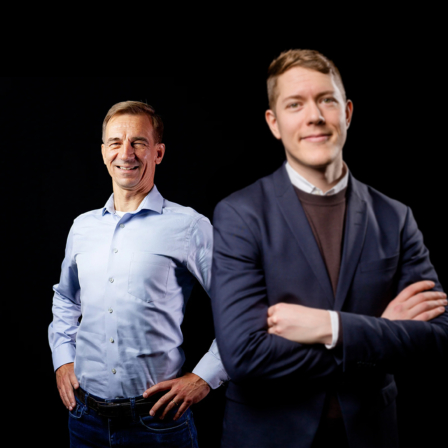According to a survey commissioned by Sitra, 75% of Finnish companies believe carbon neutrality will be a significant competitive advantage in the near future. Over 500 Finnish companies responded to the survey.
The results of many market studies reveal that there is huge potential and many business opportunities for anyone able to apply their solutions for climate change mitigation and adaptation to tackling problems around the world. For example, based on a market analysis prepared for Sitra by the international consultancy firm Frost & Sullivan, carbon neutrality will create a market worth 6,000 billion euros for intelligent green solutions by the year 2050. From the perspective of Finland’s strengths, interesting sectors include energy, water and waste management, transport, construction, industry and the bioeconomy.
For instance, Finnish consortia could introduce a water management model to different global metropolises or replicate the Finnish smart building concept that has been found to work well in our cities to other cities with the same natural characteristics. Carbon-neutral business would increase Finland’s carbon handprint and, at the same time, help reduce emissions around the world. This would be a win-win situation.
Training to achieve better business
In collaboration with FIBS and Deloitte, we organised a two-day training course on carbon-neutral business for Finnish companies in December 2016 and February 2017. Around 30 people from 10 large Finnish enterprises took part. The participants represented those responsible for planning, developing and supervising the day-to-day operations and corporate responsibility of their companies. Anna Lemström and Anna Rannisto of FIBS were in charge of the training, and Daniel Kaufmann of Deloitte, who is currently developing circular economy solutions at Sitra, led the training. From Sitra, Specialist Liisa Lahti and Jaana Pelkonen, who currently works at the Smart & Clean foundation, were involved in carrying out the training. The event also included many speakers from companies that had already launched carbon-neutral business activities.
The aim of the training was to provide the participating companies with capabilities for making the transition towards carbon-neutral business. The transition was examined from the perspectives of both the carbon footprint and carbon handprint of a company. A carbon footprint equates to the climate burden of a product, activity or service, i.e. the amount of greenhouse gas produced during the life cycle of a product or activity; and it can be measured and quantified for reporting purposes.
A carbon handprint, on the other hand, is a concept describing the climate benefits (i.e. emission reduction potential) of a product, process or service to the user. Although no common standard for measuring carbon handprints has yet been established, methods for verifying a carbon handprint are currently being developed (link in Finnish) in a project led by VTT. A carbon handprint emphasises positive effects beneficial for the future, while a carbon footprint defines the current negative effects of emissions.
The training was based on a toolkit produced by Sitra’s Carbon-neutral industry focus area and on the competence of Deloitte and FIBS in business development. Sitra produced a toolkit which outlines the building blocks for carbon neutrality for Finnish companies – information, methods and models to help companies compile a road map towards carbon neutrality. The building blocks cover the company’s strategy, management, innovation activities, business development, and emissions reduction. Read more about the toolkit and the efforts to achieve carbon neutrality.
The companies participating in the training were able to recognise both easy and relatively quick solutions for reducing their emissions as well as more substantial strategic initiatives for growing company turnover and increasing their carbon handprint. The easy solutions are often linked to more efficient use of facilities, transport and mobility, and small changes in the company’s processes. The major initiatives shared the “product as a service” ideology: customers only get what they need when they need it, without a change in the ownership of the product.
When dealing with larger issues, such as the infrastructure of a metropolis or intelligent solutions, meeting the needs of the customer becomes more complex. The significance of co-operation and the ability to take risks increases. It will no longer be possible to do everything independently, and co-operation must be carried out beyond the borders of countries and industries. Change can also be met with fierce resistance; despite the fact that a change may be fully justified from the user’s perspective, others might have to give up their steady revenue streams and decision making powers. Different interest groups and a variety of agreements and regulations also tend to complicate things.
It takes courage, reflection and discretion to cannibalise one’s own business, but unless we Finns are the ones personally involved in driving the change, someone else will take on the role – and snatch our business in the process.
Seeing beyond one’s limits takes ambition and ability
Despite the fact that our survey indicates that the majority of companies perceive carbon neutrality and low-carbon solutions as important sources of strategic competitiveness, only one in four companies measure their own carbon footprint or CO2 emissions. And only one in ten companies has set a carbon neutrality target. On the other hand, many start-ups see things differently: few things in their operations cause emissions, so these types of companies are far more interested in their carbon handprint and the positive environmental impacts of the solutions they sell, factors which are also directly linked to their core business.
The participants in our training event represented companies of different sizes from a variety of sectors. There were also notable differences in the companies’ readiness to make the transition to carbon-neutral business. Some of the participants were there in order to discover new ideas and additional information on how to present reports on sustainability, others wanted to prepare themselves for the upcoming cultural shift and yet others saw the training as a chance to take a novel view on business development, new products and services. This made it challenging to do more than scratch the surface in the training. Indeed, the training was perhaps more likely to function as an impetus for new initiatives, despite the obvious demand for more in-depth sparring aimed at individual companies.
It seems that the challenges of defining and measuring are not the most significant obstacles to creating a large carbon handprint. After all, there will be nothing to measure unless we carry out ambitious co-operation, are willing and able to take risks and have a forward-looking understanding of customers that transcends current societal structures. However, if we are able to become more ambitious, Finland will have a great opportunity to become a progressive domestic market whose reference projects provide companies with the impetus for creating world-class business.
















Recommended
Have some more.